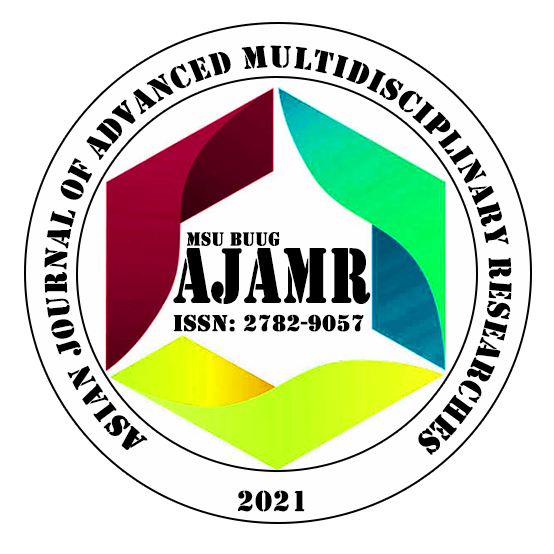

Author: Jennifer V. Castillano1
1College of Arts and Sciences, Mindanao State University Buug Campus, Datu Panas, Buug, Zamboanga Sibugay
Email: jennifer.castillano@msubuug.edu.ph
ABSTRACT
Understanding the intricate relationships that exist between poverty, illiteracy, conflict, education, development, and peace is essential, especially in
environments as destitute as the Philippines. The purpose of this study is to find out how 18 fourth-year Mindanao State University-Buug Campus
Bachelor of Public Administration (BPA) students see these related occurrences. Using the theoretical frameworks of Human Capital Theory, Conflict
Theory, and Development Theory, the study investigates the relationship between illiteracy and poverty, as well as the possible benefits of education
in resolving these problems. Recurring themes emerge from thematic analysis of qualitative data, such as the conviction that education is a means to
peace and progress and that illiteracy is the primary source of poverty. Furthermore, statistical analysis using straightforward frequency counts and
percentages improves the understanding of the patterns found in the data. The results indicate that respondents generally agreed on the connections
between poverty, conflict, education, development, and peace, although minority opinions should also be taken into consideration. In order to advance our knowledge of these intricate relationships and provide information for evidence-based policymaking targeted at combating poverty and
advancing peace, development, and prosperity in the Philippines, the study emphasizes the significance of thorough methodologies and ongoing research. Going forward, it is suggested that bigger and more varied groups be included in studies using validated and pilot-tested questionnaires.
Keywords: illiteracy; poverty; conflict; education; development; peace